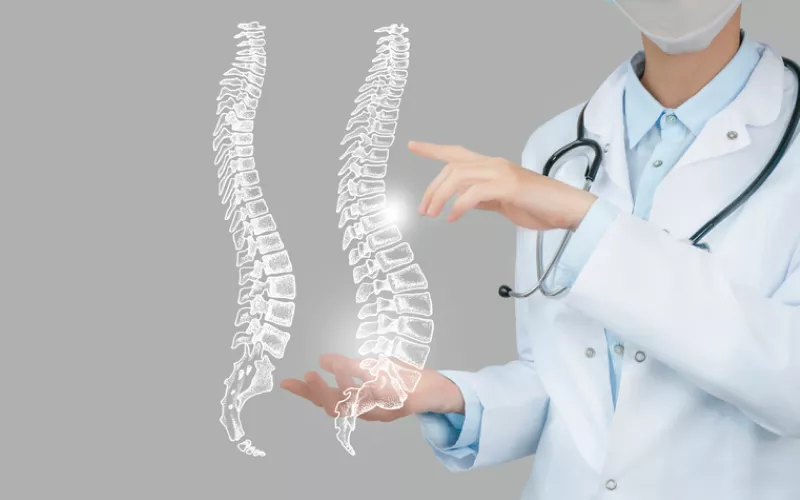Over the last few decades, medical advancements in the field of surgical orthopaedics, particularly joint replacement surgeries, have shown rapid development. The number of joint replacement surgeries performed in India has increased exponentially over the previous several years. The hip replacement method has altered dramatically as a result of technological advancements. With our improved treatment techniques in hip replacement surgery, difficulties related to alignment and subsequent complications are no longer a problem. Many leading Orthopedists in India are now using advanced surgical methods and precision tools to ensure faster recovery and better outcomes for patients.
What is hip replacement surgery?
Hip replacement surgery is commonly called total hip arthroplasty. It is surgical a procedure to remove damaged portions of your hip joint and replace them with parts made of metal, ceramic, or hard plastic. A ball (at the head of the femur) and a socket make up the hip joint (in the pelvis). One or both portions of the hip are replaced during this procedure. This artificial joint (prostheses) helps relieve pain or discomfort and increase function. It can be the best option for you if your nonsurgical treatments are no longer effective and if your hip discomfort is interfering with your everyday activities. Arthritis deterioration is one of the most common causes of hip replacement surgery.
Types of Hip Replacement Surgery:
There are three major types of hip replacement surgery:
Total hip replacement: It is the most common type of surgery done when severe damage from arthritis or injury makes it difficult to perform daily activities. During the procedure, the femoral head and acetabulum are replaced with prostheses. Your surgeon will first dislocate the femoral head from the acetabulum, remove any damaged cartilage, and reshape the socket to secure the acetabular prostheses.
Partial hip replacement: Partial hip replacement surgery is not recommended for patients with osteoarthritis or rheumatoid arthritis. Usually, an elderly patient who had a traumatic fall and a fracture at the top of the femoral or neck prefers replacing only one side of the damaged hip joint instead of both as in total hip replacement surgery.
Hip resurfacing: The socket remains the same, but instead of removing the femoral ball, the doctors would remove the top outer portion and replace it with a metal cap to preserve some of the proximal femoral bone. It could be an option for younger people for a better range of motion.
If you are looking to get the surgery, then consult the doctors at the best orthopedic hospital in Hebbal, Bangalore who perform surgery with modern equipment's
Reason to undergo a hip replacement surgery:
Certain conditions can cause damage to the hip joint, making hip replacement surgery compulsory. Some of the conditions include:
Osteonecrosis:
This condition happens as a result of dislocation or fracture. If there is no adequate blood supply to the hip joint's ball area, the bone may collapse and distort, causing severe pain.
Rheumatoid Arthritis: Rheumatoid arthritis is a type of inflammation caused by an overactive immune system that erodes cartilage and, in some cases, underlying bone, resulting in deformed and damaged joints.
Osteoarthritis:
It is also known as wear-and-tear arthritis, affects the slick cartilage that covers the ends of bones and allows joints to move freely.
We suggest a hip replacement surgery if you experience pain that:
• Makes it difficult to walk even with a walker
• Worsens when you raise from a seated position
• Persists even after taking medicine
• Affects your ability to climb stairs
• Interferes with your sleep
If you are in India & going through any of the pain that we have mentioned above, please take consultation from best orthopedic surgeon in Hebbal, Bangalore who is renowned for performing hip surgeries with safety & advance equipment. You can also seek advice from reputed Orthopedists in India who specialize in advanced hip replacement and joint preservation treatments.
What are the risks involved?
Loosening: This is a rare case with new implants. The replaced joint may not be firmly attached to your bone or may loosen over time, causing pain in the hip. Surgery might be recommended to correct the condition.
Dislocation: Certain postures might cause the ball of your replaced joint to jump out of the socket, especially in the first few months after surgery. Your doctor might prescribe a brace to retain it in the proper position. If the issue continues, surgery might be done to stabilise it.
Infection: You can develop an infection in the tissues near your new hip and near the incision area. Most minor infections can be treated with antibiotics, but our doctors may suggest surgery to remove and replace the prosthetics if the infection is serious.
Fracture: Even the strong hip joint may fracture during surgery. Minor fractures may heal on their own, but severe fractures might be fixed with a bone transplant, metal plate, or screws.
Blood Clots: Post-surgery, there are possibilities for clots to form in your leg veins. This can be fatal because the clot can break off and travel to the heart, lungs, and even the brain. In this case, blood-thinning drugs may be prescribed to reduce the risk.
FAQs:
1) How long does the surgery take?
The total procedure takes an hour or so, but several steps before and after surgery can make the entire process a few hours to complete.
2) How long does it take to recover from surgery?
Recovery from hips replacement surgery is quick. But, it can vary significantly based on the patient's age and type of surgery.
3) How will I know if my incision is infected?
It is normal to notice swelling, discolouration, and drainage around the place of the incision. But a painful red swelling or smelly drainage can indicate infection.
4) When will I be able to drive again?
In most cases, you can slowly start to resume driving after four weeks from surgery.
5) What activities should I avoid after surgery?
It is important to return to normal activities gradually. However, it is good to avoid high-impact activities.
The source of information for the FAQs are mentioned below:
https://www.uofmhealth.org/conditions-treatments/cmc/faq-total-hip-replacement
https://www.mercy.net/service/hip-joint-replacement/hip-replacement-surgery-frequently-asked-questions/
















